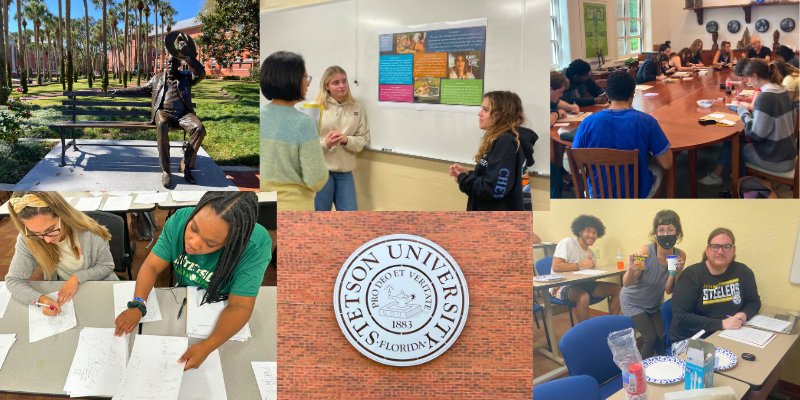
Anthropology
What is Anthropology?
Derived from the Greek anthropos (human being) and logos (word, expression), anthropology is the study of the human condition, focusing on what it means to be human, both physically and culturally. Anthropological inquiry encompasses a broad range of topics, including:
Cultural anthropology: Contemporary cultures and patterns of belief, expression, and life ways;
Anthropological linguistics: Patterns of speech, language/dialect, and systems of symbolic communication;
Physical anthropology: The primate evolutionary record and how our species evolved, including why modern populations have retained certain physical traits and the ways in which we are similar to our nearest living relatives, the non-human primates;
Archaeology: The material record of populations/cultures that no longer exist.
At Stetson University, the Anthropology minor focuses on two aspects of anthropology: cultural anthropology and archaeology.
Cultural anthropologists attempt to describe and explain human behavior within a social context. They study the customs, traditions, and expressions of culture. Issues such as kinship, migration, political and economic institutions, religion, and the ways in which cultures adapt to change are the primary topics of inquiry.
Archaeologists try to unravel the mysteries of cultures that no longer exist. The goals of archaeologists are:
To strive toward reconnecting our own living cultures with those of our ancestors;
- To understand how people lived in the past and how they interacted with each other.
- To learn how ancient civilizations came to be.
- To understand the mechanisms of their downfall.
Anthropology students develop unique skills and vital strengths. Understanding the life ways and forms of expression of peoples from all over the world, past as well as present, fosters creativity and reinforces critical thinking skills. Our students understand the value of diversity and tolerance. They learn to place 21st century American culture in its unique context. The opportunity to learn the ancient classical languages, Greek and Latin, gives them a distinct edge should they decide to pursue careers in the health sciences,the legal profession, graduate school, or the business world.